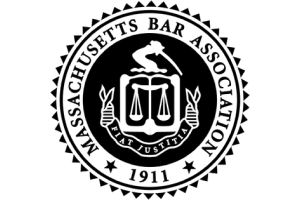Defense Lawyer
What is Pretrial Probation, a Continuance Without a Finding (CWOF) and a Guilty Plea or Verdict in Massachusetts criminal law?
Should I Plead Guilty in my Massachusetts Criminal Case?
The most important decision a criminal defense attorney makes with its defense clients is whether to go to trial, plead guilty or to pursue a continuance without a finding (“CWOF”), pretrial probation (“PTP”), pretrial diversion or another outcome. The decision is complicated, as is the decision of when to pursue one of these options. These questions depend on many, many factors that are individual to each client’s future, the facts of her Massachusetts criminal case and the strength of the case or the likelihood that the case can be tried at all. Generally, Boston criminal defense attorney Joe Serpa considers a CWOF, or especially a guilty plea, to be absolute last resorts because the consequences can be difficult on our clients’ futures.
Massachusetts CWOFs, Pretrial Probation, Pretrial Diversion or Dismissal. What’s the Difference?
Massachusetts criminal courts can order your criminal case to be resolved in several ways. A continuance without a finding (CWOF), pretrial probation (PTP), pretrial diversion and dismissals are all alternatives to pleading guilty and to going to trial. Sometimes, cases are so serious or of a nature that some outcomes are unavailable. For example, Massachusetts criminal laws do not allow a CWOF in an OUI -2nd offense drunk driving case or in a case charging leaving the scene of an accident with personal injury.
Another limitation is that judges, as much as they’d like to, cannot order dismissals or pretrial probation if the prosecution does not agree. This is because the Massachusetts Supreme Judicial Court has decided that the “separation of powers” clause of the United States Constitution and the Massachusetts Declaration of Rights makes dismissals and pretrial probation the province of the executive branch (prosecution) and not the judicial branch.
So, what’s the difference between a CWOF, pretrial probation, pretrial diversion and dismissal in Massachusetts criminal courts?
Simple Dismissal of my Massachusetts Criminal Case
In short, a simple dismissal is the formal end of a case without any further obligation, punishment or finding that a defendant committed a crime. Cases can be dismissed if the defense attorney and the prosecution agree. That’s the easiest way to obtain a dismissal. In other cases, dismissals can occur even if the prosecution disagrees, but these circumstances are more narrow. If a judge allows a motion to suppress and “throws out” certain evidence because there was an unlawful search and seizure by police, the case can be dismissed if the suppressed evidence was necessary for the prosecution to bring its case to trial. Boston criminal defense lawyer Joe Serpa is an expert in this area and has had countless cases dismissed for bad searches and seizures.
Similarly, the prosecution needs eyewitnesses to testify to a jury) or a judge at trial. If on the day of trial, the prosecution does not have a necessary witness in court, the case can be dismissed “for want of prosecution.” This is a successful outcome as well. Boston criminal defense lawyer Joe Serpa has had thousands of cases dismissed for this reason.
Finally, under two famous Massachusetts criminal cases called “Commonwealth v. DiBennadetto” and “Commonwealth v McCarthy,” a case can be dismissed for “lack of probable cause.” This means that the case should never have begun because there is no valid accusation, regardless of the truth of the claim, that the accused person committed the crime charged. This can happen after a defense motion even if the prosecution disagrees. Boston criminal defense attorney Joe Serpa won many such motions in its Boston criminal defense practice.
CWOF (Continued Without a Finding) in Massachusetts
A Massachusetts CWOF can end in dismissal. However it is not a simple dismissal because there is an acknowledgement by the accused person that he committed the crime.
A continuance without a finding is a bit of a misnomer. In a CWOF, the defendant has a plea hearing and acknowledges to the judge that she committed the charged offense. However, the judge does not find the defendant guilty. Instead, the judge orders that the case remain open for a period of time, usually six months or a year. During that time, there may be conditions such as supervision by the Massachusetts probation department (“supervised probation”) or there may be no supervision (“administrative probation”). If the defendant does not violate any condition of the CWOF, and is accused of committing no more criminal offense, the case can be dismissed. After dismissal, the matter can be sealed.
On the other hand a violation of the conditions of the CWOF can lead to a guilty finding and whatever punishment that crime allows. A person accused of violating a CWOF is entitled to a final hearing after which a judge has many options, including extending the CWOF or converting the CWOF to a guilty finding and punishing the defendant.
CWOFs can have repercussions. For example, a CWOF is available in only first-offense OUI cases (drunk driving) under a “24D disposition.” With the CWOF comes probation for one year, a driver’s education course and a 45-day license suspension. After the year, if all goes well, the case is dismissed. However, the dismissed case will always count as a first offense under Massachusetts drunk driving laws even after dismissal. A second accusation of drunk driving will be charged as a second-offense OUI regardless of the dismissal after a CWOF.
Another negative result of a CWOF is that it is seen as a conviction by immigration authorities. There is no difference in the eyes of the United States Government between a CWOF and a guilty finding. Therefore, if you have a CWOF in a case that can lead to deportation, that deportation will occur as if you had pled, or been found guilty. Most drug offenses, domestic violence cases and serious felonies will lead to deportation after a CWOF.
Pretrial Probation (PTP) and Pretrial Diversion in Massachusetts
Pretrial diversion and pretrial probation are simply delayed dismissals of the case without any finding that the accused person committed the alleged offense. Pretrial probation and pretrial diversion are similar outcomes in Massachusetts criminal cases and are almost always a good outcome. Both PTP and pretrial diversion include no admission or finding that that the accused person committed the crime. In the simplest sense, PTP and pretrial diversion in Massachusetts are continuances, or extensions, of the case as an “open” or “pending” case that eventually end in dismissal after a specified time. Six-months or one year are common periods for PTP and pretrial diversion. After dismissal, the case can be sealed.
The most effective way to have pretrial diversion or PTP in Massachusetts is to have the judge order diversion or PTP before arraignment. This means that your case will not show on your Massachusetts criminal record. If you complete the PTP or diversion with o problem, no Massachusetts criminal record will exist at all about your case.
Importantly, immigration authorities do not recognize cases dismissed after PTP or pretrial diversion as convictions. There will be no immigration consequences because of PTP or pretrial diversion cases.
There are limitations. In pretrial probation, the district attorney’s office must agree. A judge cannot order PTP over the objection of the prosecution.
Pretrial diversion is even more limited. Unlike pretrial probation, a judge can order pretrial diversion even if the prosecution disagrees. However, our legislature has created a long list of crimes that cannot have pretrial diversion. For example, all “crimes against the person,” which are crimes of violence or threatened violence, cannot have pretrial diversion except simple assault or simple assault and battery.
The decision of whether to go to trial, plead guilty or to pursue a CWPF, PTP, pretrial diversion or another outcome is complicated. It is also the most important decision you can make if you are accused of a Massachusetts criminal offense. Contact Serpa Law Office to discuss these outcomes and what is best for you.












